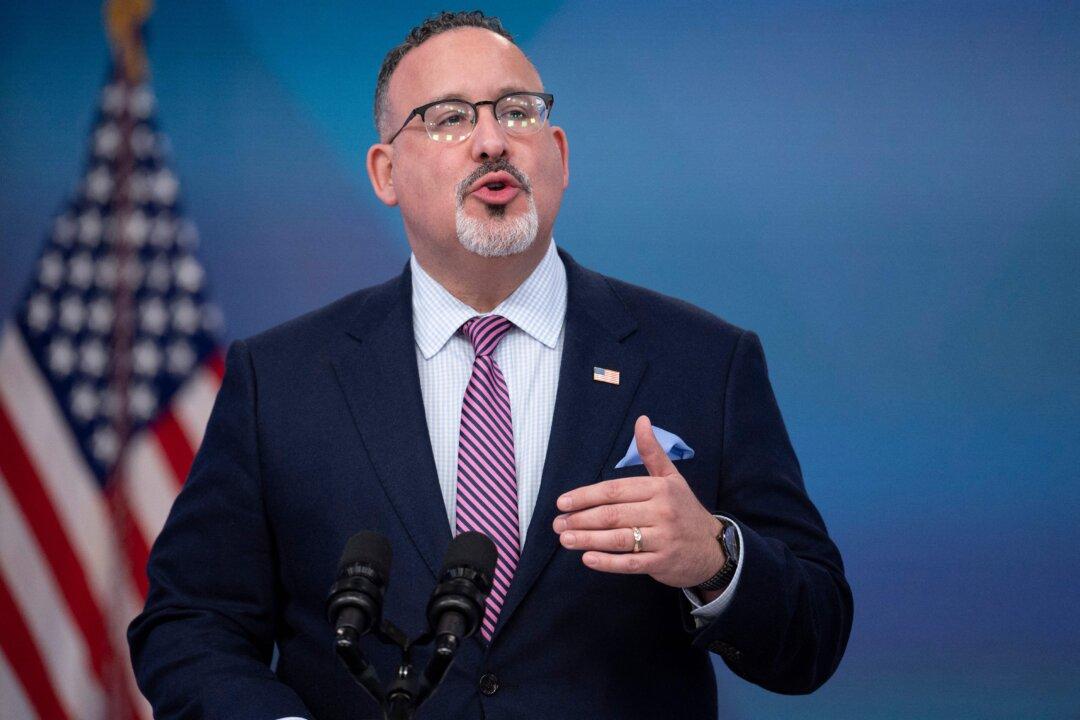As parents nationwide call for greater transparency in public schools, U.S. Secretary of Education Miguel Cardona repeatedly dodged a question about whether parents should be informed if their child is undergoing a gender transition at school.
During a virtual hearing on May 26, Cardona testified before the House Education Committee on his department’s budget request for 2023. He continued to avoid giving direct answers when Rep. Jim Banks (R-Ind.) asked him if he thought that schools should “keep a student’s gender transition secret from their parents.”





